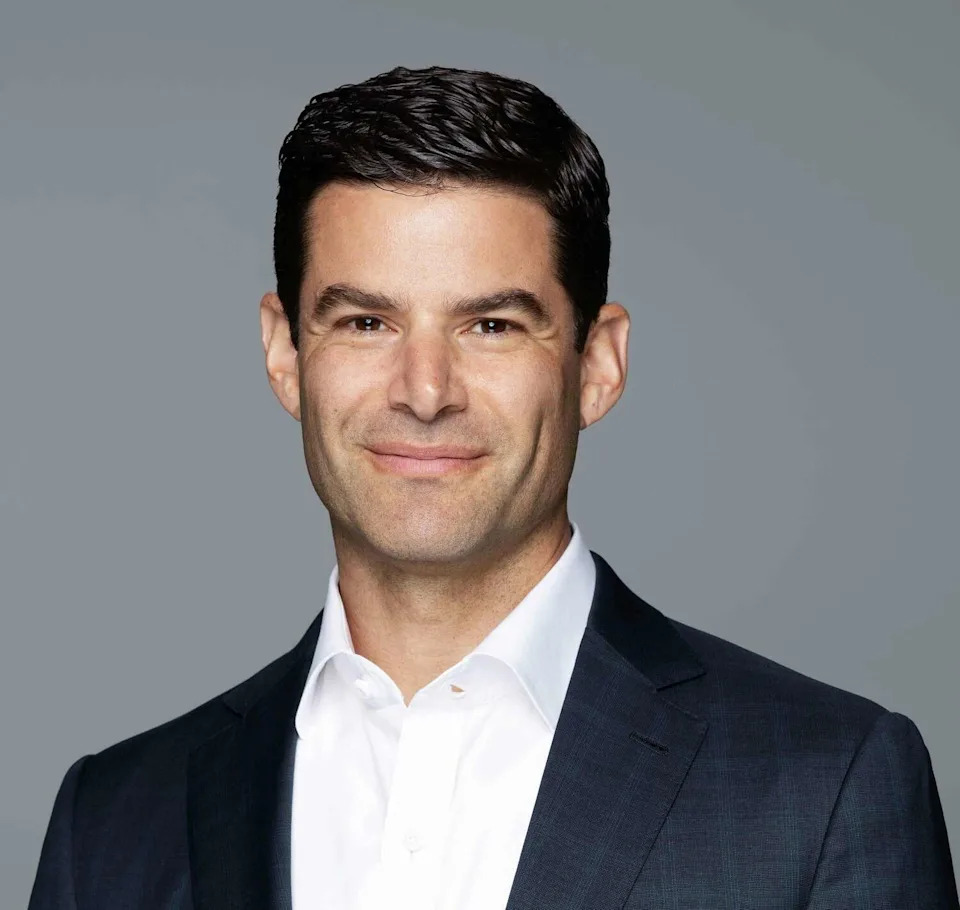As he seeks to fulfill one of his signature initiatives, San Francisco Mayor Daniel Lurie is facing criticism over the highly unusual way his office awarded a lucrative contract to a tech company that has financial ties to the nonprofit he founded.
But Lurie and one of his top advisers, Ned Segal, are defending the process they followed to give OpenGov, a San Francisco government technology firm, a contract worth up to $5.9 million in the first year to overhaul the city’s notoriously complicated permitting system.
The Lurie administration cast a wide net this spring when it asked companies for ideas about how to centralize the city’s fragmented permit processes and create a single online destination for applicants to seek permits from any department that issues them.
Records obtained by the Chronicle show the mayor’s office homed in on OpenGov as a potential winner and decided to contract with the company without taking the usual next step of putting the contract out to bid. To do so, it cited a little-known section of the administrative code that allows the city to pick a particular type of software that it wants to license.
In choosing OpenGov, the office passed over another company that had pitched a far less costly vision for reforming the permitting system. It also overrode staff concerns about OpenGov and broader support for the competitor, Clariti, according to a Chronicle review of hundreds of pages of documents obtained in recent weeks through public records requests.
The San Francisco Standard first reported on the documents and the questions they raised.
The decision to forgo the normal process opened up the Lurie administration to criticism that his office may have unfairly chosen OpenGov, particularly because of the long-standing ties between Lurie, his former nonprofit Tipping Point and OpenGov leaders.
It’s a reflection of how Lurie, who entered office in January as an outsider promising to draw on his nonprofit background and private sector connections to make City Hall more efficient, is straying from bureaucratic norms as he seeks to accomplish his goals as quickly as possible. Lurie has made no secret of his desire to do things differently as he looks to execute his agenda.
“We’re trying something new,” Lurie told city staff Wednesday as he talked about the OpenGov project. “What you all have been doing – and some of you have been here for a long time – has worked to a point. But we still have to get better. … I got elected because people were tired of all the ways that we had been doing things. They wanted to see change.”
Segal, Lurie’s chief of housing and economic development, told the Chronicle in an interview Thursday that the city sought an array of information from potential vendors because “we wanted to learn in a really open-ended way” from software providers the city had worked with – and those it had not. After reviewing about 50 submissions and closely evaluating a subset of them, Segal said he and Elizabeth Watty, the head of Lurie’s permit reform initiative, chose OpenGov.
“We wanted a really strong product, but also a product that would grow with the city as we rolled it out to more departments as our needs changed,” said Segal, a former chief financial officer for Twitter. The fact that the company is based in San Francisco was “an added plus… all else equal,” he said.
But Supervisor Jackie Fielder, a progressive who has at times been critical of the moderate Lurie, said she was concerned San Francisco was paying OpenGov much more than it needed to compared with its competitor, Clariti.
“I’m concerned that the city is being exposed to real risks of conflicts of interest, and that billionaire tech bros with connections to the mayor’s office are getting preferential treatment,” Fielder said in a statement to the Chronicle.
Ed Harrington, the former longtime city controller, said he had never heard of the section of the administrative code the mayor’s office cited to award the contract.
“I would think they put this in for something like you are buying a Microsoft product,” Harrington said. He was critical of how the decision-making process seemed to be insulated within the mayor’s office.
OpenGov said in a statement that it is “committed to fair and transparent public procurement processes, grounded in our mission to power more effective and accountable government.
“As a company founded and headquartered in San Francisco, we’re deeply committed to making this project a success for the City and everyone it serves,” the statement said.
Started in 2011 by entrepreneur Zac Bookman and Palantir co-founder Joe Lonsdale, OpenGov provides technology to more than 2,000 government customers. In its submission to the city in June, OpenGov said it was founded on the premise that “state and local governments deserved access to modern cloud software suited for their increasingly complex needs” and that “citizens deserved transparency and engagement.”
Zac Bookman, center, speaks with Daniel Lurie at the ceremony for the Chronicle’s “Visionary of the Year” award in 2015. Lurie’s administration is under fire for its award of a contract to Bookman’s company, OpenGov. (Carlos Avila Gonzalez/S.F. Chronicle)
Bookman, its CEO, is a San Francisco resident who studied corruption in Mexico as a Fulbright scholar. In 2015, he was nominated for the Chronicle’s “Visionary of the Year” award by Pro Football Hall of Famer Ronnie Lott, a former 49er and board member emeritus of Tipping Point. A Chronicle photographer captured Bookman speaking with Lurie at the award ceremony.
Bookman contributed $500 to Lurie’s mayoral campaign in 2023 and $500 to Lurie’s competitor Mark Farrell the next year, records show. Bookman and other OpenGov leaders have given more than $31,000 to Tipping Point over the years, with most of the sum contributed about 10 years ago, said Tipping Point spokesperson Max Szabo, who is also an adviser to Lurie. Tipping Point raises about $30 million annually.
OpenGov is also linked to Lurie through an adviser, Katherine August-deWilde, a major Lurie benefactor who was on the board of the company before it was acquired by Cox Enterprises. August-deWilde is on the Tipping Point board and has given extensively to the nonprofit and donated to support Lurie’s mayoral bid. She currently serves as president of the Partnership for San Francisco, a CEO council formed at Lurie’s urging to advise the city on the economy.
Segal said OpenGov’s connections to Lurie had no bearing on the city’s decision to grant the permit contract to the company.
One of Lurie’s first initiatives after he took office this year was PermitSF, a plan to bring speed, predictability and transparency to a city permitting system not known for any of those attributes.
Within a year, Lurie hoped to roll out a new system that would let permit seekers track the status of their applications across departments and implement technology to help departments more easily facilitate permit approvals on the back end.
His office began speaking with OpenGov about its plans as early as April 2, when Segal wrote an email connecting Bookman with Florence Simon, who had just started her job as director of the mayor’s innovation office weeks earlier. Segal said Bookman could “help us think through permitting technology.”
“Zac has been patiently waiting for the right partner :),” Segal wrote.
Emails show that Bookman then visited Simon at City Hall, that Simon went to OpenGov’s offices to see their product in person and that Simon spoke with an official from Cambridge, Mass., to learn more about the city’s work with OpenGov. Emails show that at least one other company, Accela, had also talked to Simon about PermitSF.
“I was hearing from a lot of different vendors” at the time, Simon told the Chronicle. “I took all those meetings.”
Simon told OpenGov in a May 19 email that she had a “great” call with the Cambridge official, who was “very transparent about the process and what OpenGov brought that was so unique.”
The next day, the city issued a request for information seeking ideas from potential vendors.
OpenGov and Clariti were among the dozens that responded. In OpenGov’s submission, the company estimated the city would pay $1.9 million annually for software services and as much as $8 million to get the technology up and running. Clariti, meanwhile, estimated $528,000 for software licensing and as much as $1.4 million for implementation.

Ned Segal, chief of housing and economic development for Mayor Daniel Lurie, oversaw the awarding of a contract to OpenGov that is now under scrutiny. (Courtesy of Ned Segal)
But Segal said those figures aren’t comparable because the city did not solicit detailed questions about costs, giving vendors wide latitude in how they crafted their financial estimates in their submissions.
As the Lurie administration evaluated the submissions, officials turned to staff in multiple departments for input. Those who assigned scores at two different points in the process indicated a preference for Clariti over OpenGov, records show.
“The general consensus of most testers is that Clariti is the most suitable of the 3 products, and that there were gaps so significant in the other two products that they shouldn’t be considered,” staff wrote in a July 25 document. They were summarizing results of a technical assessment of three finalists: Clariti, OpenGov and LeapThought.
Segal said the city didn’t set up a formal scoring panel to definitively select OpenGov as the permitting vendor. While the Lurie administration considered technical evaluations provided by some city staff, Segal and Watty also evaluated the vendors in other ways.
“We got the best feedback from people when we all got in a room and we just asked everybody to talk about the pros and cons of the different companies,” Segal said.
Simon drafted a presentation in late July that sheds more light on why the city went with OpenGov over Clariti. The presentation said OpenGov executives had “addressed many of our outstanding product roadmap concerns,” but Clariti left officials “with some outstanding concerns on implementation experience and partnership approach.”
Segal announced the selection of OpenGov internally on Aug. 14, nearly two weeks before he and Lurie announced the choice publicly.
“We believe OpenGov is best aligned with the guiding principles we outlined in the RFI, and glowing references and executive sponsorship give us confidence they will be the right partner as we transform permitting across departments,” Segal said in the internal announcement.
On Oct. 2, Segal signed a one-year contract with OpenGov, with a renewal option for two years.
This article originally published at A tech firm with ties to Mayor Lurie got a big city contract. Did it get preferential treatment?.
Copyright for syndicated content belongs to the linked Source link







